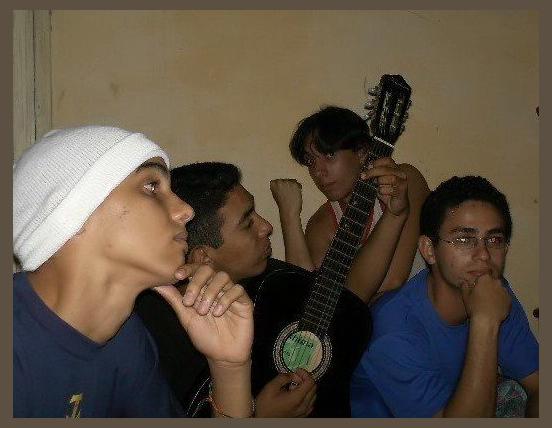 Katarro de Kalango
Katarro de Kalango
Katarro de Kalango: Navigating Challenges and Controversies
Katarro de Kalango, a Brazilian musical ensemble renowned for their captivating lyrics and energetic performances, has faced its fair share of trials and triumphs during its illustrious career.
Early Challenges:
Emerging in the vibrant city of São Paulo in 1992, Katarro de Kalango initially grappled with the challenges of gaining recognition in a crowded music scene. Their unique blend of traditional Brazilian rhythms and contemporary influences often met with skepticism from established labels and promoters.
Breakthrough and Controversy:
The band's fortunes changed with the release of their 2004 song "Astrogênia," which became a breakout hit. Its fusion of rap, funk, and Brazilian folklore resonated with a broad audience, propelling Katarro de Kalango to national fame. However, the song's explicit lyrics and unconventional style drew controversy, with some critics accusing the band of promoting vulgarity.
Artistic Evolution:
Undeterred by criticism, Katarro de Kalango continued to push creative boundaries. Their subsequent albums, including "Samba do Cão" (2006) and "Nação do Cão" (2009), showcased their versatility and lyrical depth. While they remained faithful to their signature sound, they experimented with new genres such as reggae and ska.
Discography:
* 1995: Katarro de Kalango
* 2004: Astrogênia
* 2006: Samba do Cão
* 2009: Nação do Cão
* 2013: O Último Dançarino
* 2018: Nação Cão - Ao Vivo
Members:
* Serginho (vocals)
* Bruno Trip (guitar)
* John MC (bass)
* Binho (drums)
* Dani Nega (keyboards)
Legacy:
Despite the challenges they faced, Katarro de Kalango has left an enduring mark on Brazilian music. Their ability to merge traditional and modern elements has created a unique and influential sound that continues to captivate audiences. While their controversial lyrics may have divided opinion, their artistry and dedication to social commentary have earned them widespread respect.
Katarro de Kalango, a Brazilian musical ensemble renowned for their captivating lyrics and energetic performances, has faced its fair share of trials and triumphs during its illustrious career.
Early Challenges:
Emerging in the vibrant city of São Paulo in 1992, Katarro de Kalango initially grappled with the challenges of gaining recognition in a crowded music scene. Their unique blend of traditional Brazilian rhythms and contemporary influences often met with skepticism from established labels and promoters.
Breakthrough and Controversy:
The band's fortunes changed with the release of their 2004 song "Astrogênia," which became a breakout hit. Its fusion of rap, funk, and Brazilian folklore resonated with a broad audience, propelling Katarro de Kalango to national fame. However, the song's explicit lyrics and unconventional style drew controversy, with some critics accusing the band of promoting vulgarity.
Artistic Evolution:
Undeterred by criticism, Katarro de Kalango continued to push creative boundaries. Their subsequent albums, including "Samba do Cão" (2006) and "Nação do Cão" (2009), showcased their versatility and lyrical depth. While they remained faithful to their signature sound, they experimented with new genres such as reggae and ska.
Discography:
* 1995: Katarro de Kalango
* 2004: Astrogênia
* 2006: Samba do Cão
* 2009: Nação do Cão
* 2013: O Último Dançarino
* 2018: Nação Cão - Ao Vivo
Members:
* Serginho (vocals)
* Bruno Trip (guitar)
* John MC (bass)
* Binho (drums)
* Dani Nega (keyboards)
Legacy:
Despite the challenges they faced, Katarro de Kalango has left an enduring mark on Brazilian music. Their ability to merge traditional and modern elements has created a unique and influential sound that continues to captivate audiences. While their controversial lyrics may have divided opinion, their artistry and dedication to social commentary have earned them widespread respect.